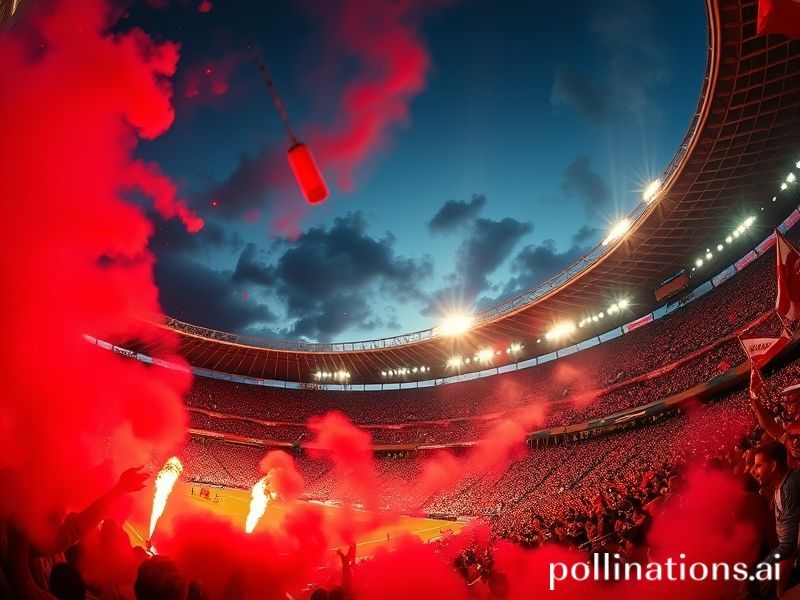Benfica FC: Portugal’s 120-Year Masterclass in Exporting Heartbreak to a Global Audience
Lisbon, Portugal – Somewhere between the fado bars and the pastel de nata stands a 120-year-old football club whose annual drama is more binge-worthy than any Netflix mini-series. Benfica FC, the self-anointed “People’s Club,” has spent the past century perfecting the art of almost-glory while exporting heartbreak to five continents. From Maputo to Macau, supporters tune in because nothing says universal catharsis quite like watching 11 millionaires in red shirts invent new ways to suffer.
Internationally, Benfica functions as Europe’s most efficient talent-laundering service. They hoover up South American prodigies, polish them like vintage port, then flip them for sums that would make hedge-fund managers blush. Darwin Núñez, João Félix, Enzo Fernández—all once ran out at the Estádio da Luz wearing the expression of men who know their LinkedIn is about to explode. The club’s academy, Caixa Futebol Campus, is less Hogwarts and more a conveyor belt of human IPOs valued by scouts with stopwatches and Excel files full of xG jargon. Global capitalism never sleeps, and neither does Benfica’s sales department.
Yet the real product isn’t goals; it’s narrative. Every August, the club’s marketing team ships hope in 40-foot containers labeled “This Is Our Year.” By April the crates return filled with crushed dreams and unused fireworks. It’s a ritual so dependable that oil traders in Houston schedule short positions around it. After all, nothing drags down Portuguese consumer confidence faster than a Benfica collapse in the Champions League quarter-finals—followed by the traditional resignation of the coach on live television, soundtracked by a mournful violin only Iberia could produce.
The geopolitical angle? Consider the Chinese state broadcaster who shelled out for rights to Primeira Liga matches because Xi Jinping once read that Luís Figo came through the Portuguese youth system. Somewhere in Beijing, a mid-level apparatchik now spends Friday nights explaining to superiors why Benfica just lost to Gil Vicente, a club whose annual budget is less than the catering line item for the Politburo’s spring retreat. Soft power, like Benfica’s back four, is prone to catastrophic misalignment.
Meanwhile, the diaspora keeps the brand alive. In Toronto, a barber offers free haircuts if Benfica wins the derby. In Caracas, fans gather at 10 a.m. to watch grainy streams while the national economy implodes outside—because nothing distracts from hyperinflation like a 93rd-minute offside call. The emigré experience is distilled into one universal truth: no matter where you run, the club will still find a way to psychologically waterboard you.
The wider significance lies in how Benfica epitomizes the modern football paradox: immense global reach, zero control over destiny. They are the Mediterranean Arsenal—too big to fail, too neurotic to succeed. Sponsors adore them because the fanbase spans tax brackets and time zones, yet the squad remains trapped in a Sisyphean loop where UEFA coefficients roll downhill. The club’s museum brags about 37 league titles, but half the visitors are really there for the interactive exhibit where you can watch Eusébio cry in 4K. Schadenfreude, it turns out, is the one export the EU never needs to regulate.
So when the final whistle blows this season—somewhere between a heroic exit on away goals and a managerial PowerPoint titled “Rebuilding Trust”—remember you’re not just watching football. You’re observing a multinational experiment in managed disappointment, a stress test for human optimism, and a reminder that in an age of AI and gene editing, some things remain perfectly, stubbornly predictable. Benfica FC: guaranteeing global heartbreak since 1904, now available in HD, 4K, and whatever streaming resolution your dystopian regime allows.







